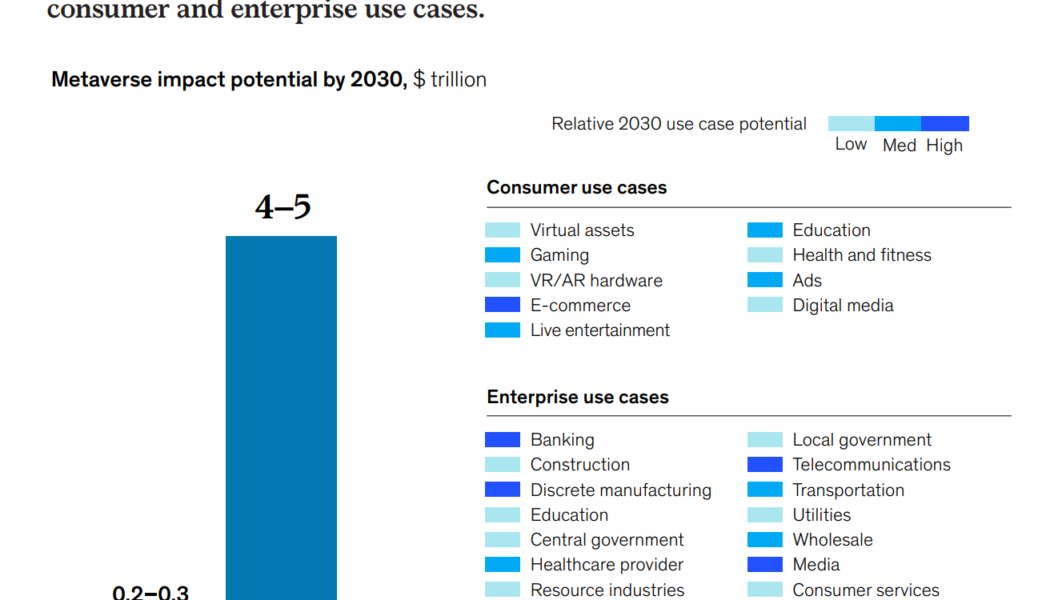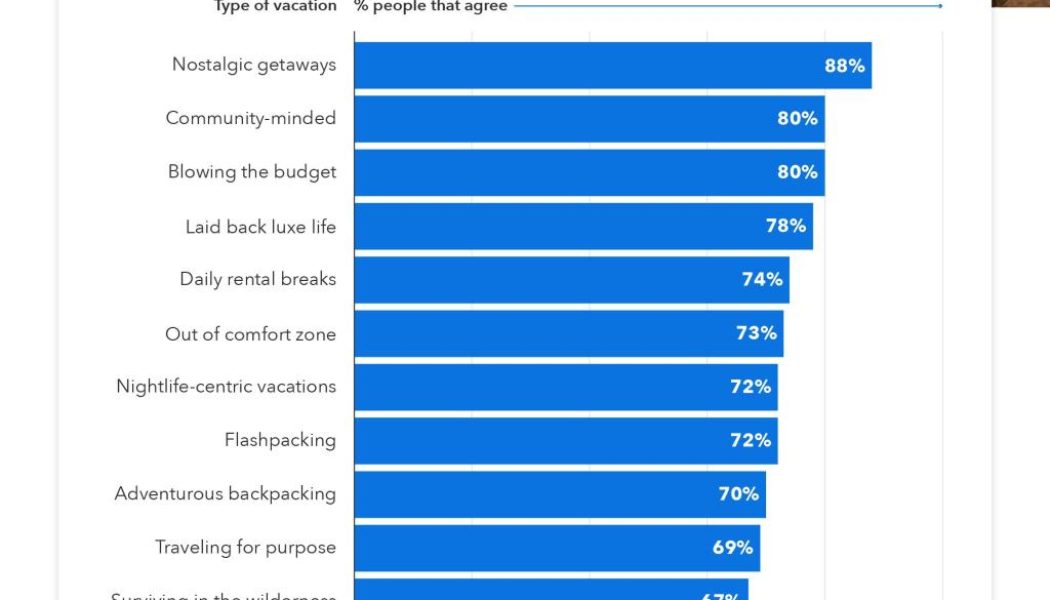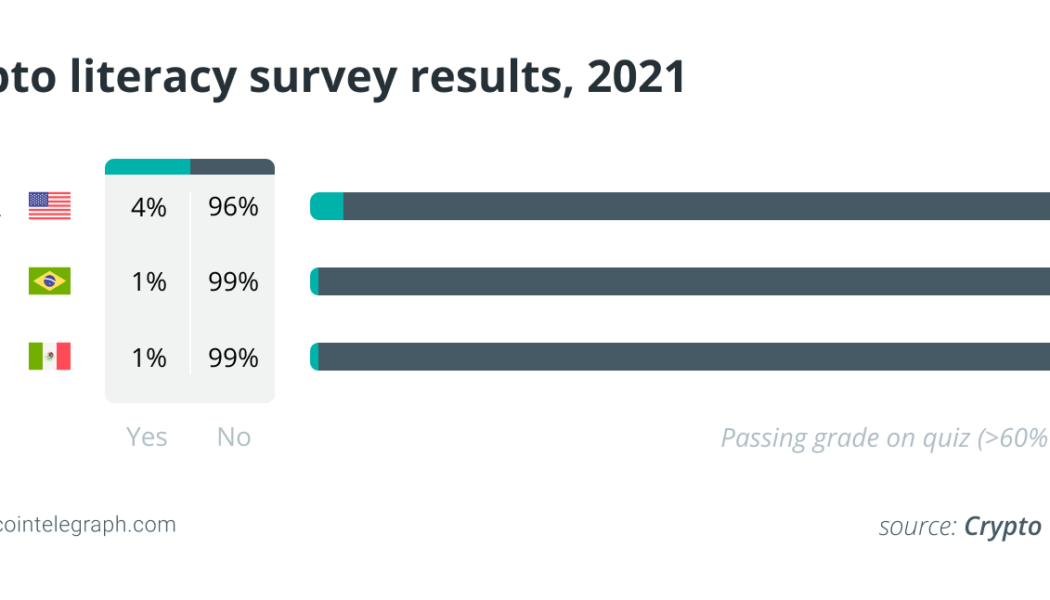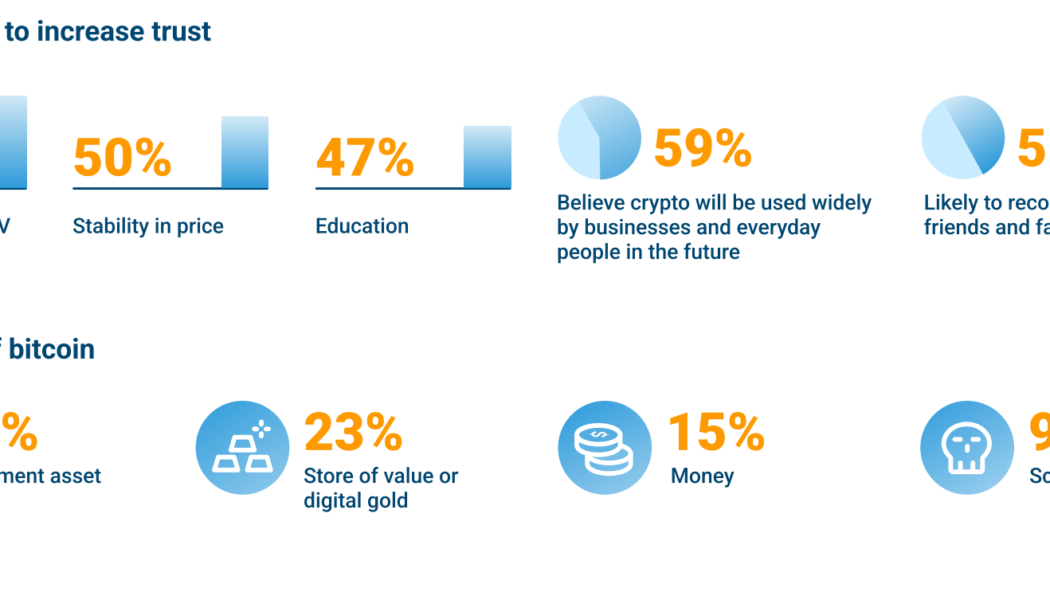Survey
Turkey has an obsession with crypto — Specifically Dogecoin: Study
The crypto market slump doesn’t mean interest in crypto is also down. A new study from the cryptocurrency education platform CryptoManiaks revealed that many countries are still scouring the internet, hungry for crypto-related information. According to the study, the Netherlands and Turkey take the top two spots, with 8.2% and 5.5% of the population, respectively, searching for crypto-related terms. Turkey particularly accounted for 4.7 million searches, leading the searches with sheer numbers. The study analyzed the combined number of searches for a select set of popular cryptocurrencies into a percentage of the population for each country in order to calculate the percentage of locals searching each month. While it was in second for overall searches, Turkey came in first place ...
Remote work triggers move to DAOs in the post-pandemic world: Survey
A survey sample of working Americans suggests that millennial and Generation Z workers are far more in favor of joining decentralized autonomous organizations (DAOs) and working remotely in the post-Covid-19 world. Over 1,100 Americans took part in a survey conducted by MetisDAO Foundation which explores trends in remote working preferences and the emergence of DAOs in recent years. A key consideration is the effect that Covid-19 has had on worker sentiment and the growth of DAOs in corporate governance. Citing a research report on DAOs published by the Harvard Law School Forum on Corporate Governance, the results of the survey highlight how DAOs saw their treasuries swell from $400 million to $16 billion in 2021. This coincided with growing participant figures, up from 13,000 to 1.6 milli...
38% of US voters will consider candidates’ position on crypto in midterms: Survey
Roughly a third of eligible voters in the United States will be “considering crypto policy positions” when choosing candidates in the 2022 midterm elections, according to a new survey. In the results of a 2,029-person survey conducted by The Harris Poll between Oct. 6 and 11, 57% of likely midterm voters say they would be more likely to vote for a political candidate interested in staying informed about cryptocurrencies, while 38% said they would consider positions on crypto policy when voting in the midterms. The survey, initiated by Grayscale Investments, also suggests that crypto regulation is a bipartisan issue, with 87% of Democratic and 76% of Republican respondents saying they want clarity from the U.S. government. “Voters and lawmakers alike have been hearing about crypto, and...
We Want You to Take the Consequence 15 Readers Survey
Over the past two weeks, we’ve been celebrating Consequence’s 15th anniversary with a series of rankings, staff lists, essays, playlists, questionnaires, videos, and other retrospectives taking the pulse of a decade-and-a-half of culture. And while it’s been a lot of fun to take a stroll down memory lane, we now want to turn the tables and ask you: What have you been obsessed with these past 15 years? After all, there would be no 15 years of Consequence without our loyal audience, a community of music, movie, and TV lovers who are literally the reason we do what we do every day. To that end, we’ve come up with a simple Consequence 15 Readers Survey. It shouldn’t take too long to fill out, but we want your honest takes. Who knows, we might even share some of the most fun responses on ...
75% of retailers eyeing crypto payments within 24 months: Deloitte
Three quarters of United States retailers plan to accept crypto or stablecoin payments within the next two years according to a new survey. It also found that more than half of large retailers with revenues over $500 million are currently spending $1 million or more building the required infrastructure to make it happen. The information was revealed in Deloitte’s “Merchants Getting Ready For Crypto” report released in collaboration with PayPal on June 8. A large majority, around 85%, of the surveyed merchants said they anticipate that cryptocurrency payments will be ubiquitous in their respective industries in five years. The survey polled 2,000 senior executives at U.S. retail organizations between Dec 3 and Dec 16, 2021 when crypto prices were still riding high, but the results have only...
Investors’ perception of crypto is changing for the better: Economist survey
A report published by the Economist paints a bright future for cryptocurrency adoption, with survey respondents anticipating growing demand in the near future. Economist Impact published findings of its ‘Digimentality Report’, delving into consumer trust in digital payments and the stumbling blocks that have hampered the digitization of basic monetary functions. The data obtained provide food for thought and perspective, as it compares trends from previous surveys on the subject carried out in 2020 and 2021. Information was gleaned from a consumer survey completed by 3,000 consumers in early 2022, with half of the respondents living in developed economies including the United States, United Kingdom, France, South Korea, Australia and Singapore. The other half were respondents hailing from ...
11% of US insurers invest — or are interested in investing — in crypto
United States-based insurers are the most interested in cryptocurrency investment according to a Goldman Sachs global survey of 328 chief financial and chief investment officers regarding their firm’s asset allocations and portfolios. The investment banking giant recently released its annual global insurance investment survey, which included responses regarding cryptocurrencies for the first time, finding that 11% of U.S. insurance firms indicated either an interest in investing or a current investment in crypto. Speaking on the company’s Exchanges at Goldman Sachs podcast on Tuesday, Goldman Sachs global head of insurance asset management Mike Siegel said he was surprised to get any result: “We surveyed for the first time on crypto, which I thought would get no respondents, but I was surp...
Accessibility is the main barrier to crypto adoption — Here are the solutions
Accessibility is a pain point for cryptocurrency adoption that has been discussed for years, yet still, it is pertinent as ever. This issue was most recently recognized by the United States government as we’ve seen Treasury Secretary Janet Yellen discuss during her remarks on digital assets policy and regulation. There are barriers that are limiting accessibility to cryptocurrencies, such as financial education and technological resources, and it is our duty as developers and leaders in this revolutionary industry to address them. Studies have shown that only 33% of adults across the globe are financially literate. With many projects in the decentralized finance (DeFi) space focusing on providing individuals without access to traditional financial institutions and tools for earning, ...
Singaporean investors’ appetite for crypto is key to mainstream adoption — Survey
As Singapore continues to play an active role in boosting crypto adoption across the Asia-Pacific region, the country’s first licensed crypto exchange Independent Reserve conducted a retail-focused survey to better understand the underlying potential of the regulated market. Independent Reserve’s survey — conducted across all age groups and genders of the Singapore population — revealed a strong affinity for various financial opportunities brought forward by decentralized finance (DeFi) and other investment opportunities. As explained by Raks Sondhi, managing director of Independent Reserve Singapore, the country’s rapid crypto adoption is driven by high level of trust and confidence in the future of crypto: “58% [Singaporeans surveyed] perceive Bitcoin as an investment asset or a sto...
AFEM Launches First-Ever Survey to Explore Neurodiversity In Electronic Music Industry
The music industry has historically struggled to be inclusive to people who are neurodiverse. But as new information and research arise rapidly, music professionals in all sectors of the industry are broadening their horizons and understanding the importance of neurodiversity, the viewpoint that various neurological conditions are normal as opposed to being considered deficits. The Association For Electronic Music (AFEM) just launched a first-of-its-kind survey that will collect information from music industry workplaces. The data will be used to inform organizations and employees alike about what it’s like to work in the electronic music industry with a neurodiverse condition as well as employ people that have one. Neurodiversity includes the following: ASD (autism spectr...























